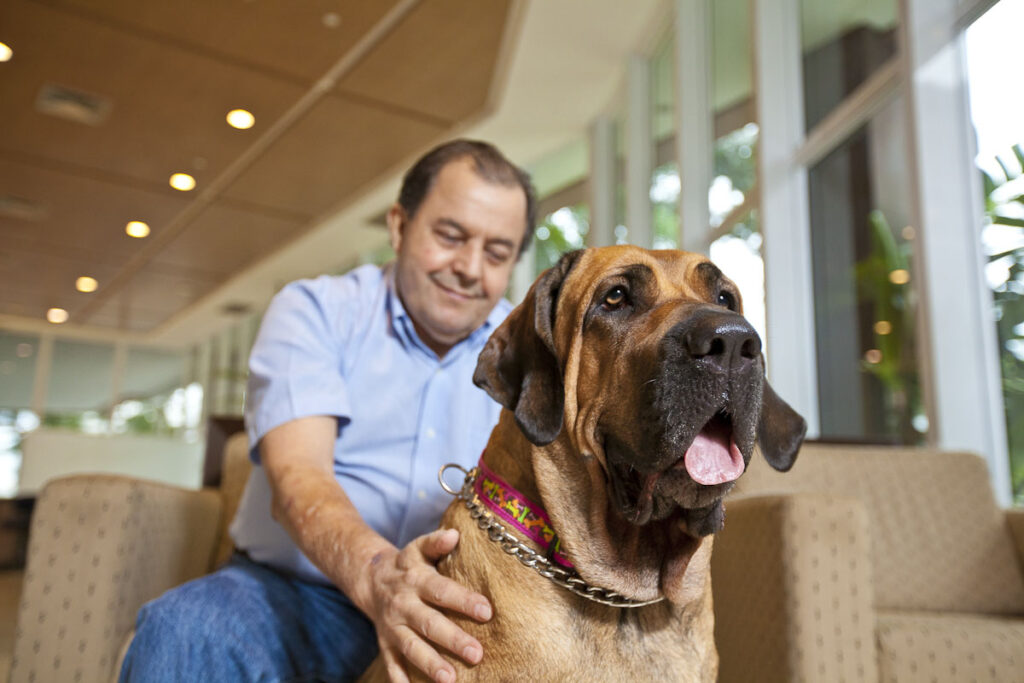In the journey toward recovery, having a strong support system can make all the difference. For many individuals, pets are an integral part of that support. The emotional bond between humans and their pets is undeniable, and research shows that this relationship can significantly reduce stress, anxiety, and feelings of isolation. In Southern California, Pet Friendly Rehab recognizes the importance of this connection and offers comprehensive pet visitation policies to enhance the recovery experience. In this article, we will explore the significance of pet visitation in rehab facilities, how it can benefit individuals in treatment, and the specific policies that make Pet Friendly Rehab a leading option for those who wish to stay connected with their pets during their journey to sobriety.
The Importance of Pets in Addiction Recovery
Emotional Support and Bonding
The presence of pets in the lives of individuals struggling with addiction can have a profound effect on their mental and emotional well-being. Animals, especially dogs, are known to provide unconditional love and companionship. During the rehabilitation process, when stress levels can be high and the journey toward recovery may feel overwhelming, pets can offer a sense of calm and grounding.
For many people, pets represent a source of stability. The emotional bond shared with a pet can foster a sense of responsibility and routine, which is crucial during the recovery process. At Pet Friendly Rehab in Southern California, we understand that maintaining these relationships can be a crucial aspect of long-term recovery success.
Stress Reduction and Emotional Healing
Pet visitation in rehab facilities has been shown to reduce stress and promote emotional healing. When people engage with their pets, their body releases oxytocin—a hormone associated with love and bonding—which helps counteract feelings of stress and anxiety. This can be especially beneficial in a rehab setting, where individuals are often dealing with the emotional toll of withdrawal, therapy, and lifestyle changes.
Studies have shown that interacting with pets lowers blood pressure and decreases levels of cortisol, the hormone linked to stress. At Pet Friendly Rehab, our pet visitation policies are designed to offer clients these scientifically supported benefits, enhancing their overall treatment outcomes.
Combating Loneliness and Isolation
One of the most challenging aspects of addiction recovery is the potential feeling of isolation. Many individuals entering rehab facilities are separated from their families, friends, and usual support networks. For those who have developed a close bond with their pets, being away from them can exacerbate feelings of loneliness.
Recognizing this, Pet Friendly Rehab in Southern California has created policies that allow for regular pet visits, ensuring that individuals can maintain that essential connection with their animal companions. This can serve as a vital form of emotional support, mitigating feelings of loneliness and isolation during the recovery process.
Pet-Friendly Rehab Policies: What You Need to Know
At Pet Friendly Rehab in Southern California, we are committed to creating an environment that is both conducive to recovery and accommodating to the unique needs of our clients. Our pet visitation policies are designed to ensure that clients can safely and responsibly incorporate their pets into their recovery process.
Eligibility Criteria for Pet Visitation
While we encourage the inclusion of pets in the recovery process, it’s essential that certain criteria are met to ensure the safety and well-being of both our clients and their pets. Some basic requirements include:
- Vaccination Records: All pets must have up-to-date vaccinations. This is to ensure the health and safety of everyone in the facility, as well as the animals themselves.
- Temperament Assessment: We require that pets undergo a temperament assessment to confirm they can adapt to the environment without causing distress or disruption. This assessment helps us ensure that the pet is comfortable around new people and environments.
- Size and Breed Restrictions: While we strive to be as accommodating as possible, there may be some limitations based on the size or breed of the pet. Larger dogs or certain breeds that are deemed more aggressive may require special consideration or additional precautions.
By ensuring these criteria are met, Pet Friendly Rehab can maintain a safe, serene environment for all individuals in treatment while allowing clients to benefit from the presence of their beloved pets.
Visitation Schedule and Guidelines
To ensure that pet visits are enjoyable and beneficial, Pet Friendly Rehab has established a structured visitation schedule. Visits are typically allowed during designated hours and are subject to approval by the therapy team. This allows us to incorporate pet visitation into each individual’s treatment plan effectively.
- Visitation Frequency: Pets can visit on a regular basis, depending on the individual’s stage of recovery and their treatment plan. In some cases, clients may have the option to see their pets daily, while others may have visits scheduled once or twice a week.
- Supervised Visits: For safety and therapeutic purposes, pet visits are often supervised by a trained staff member. This ensures that the interaction remains positive and that the individual is not overwhelmed during the visit.
- Outdoor Visits: To provide a comfortable and stress-free environment for both pets and clients, many visits take place in designated outdoor areas where clients and their pets can spend time together in a natural setting.
By adhering to these guidelines, Pet Friendly Rehab can ensure that pet visits are safe, therapeutic, and beneficial for all involved.

Benefits of Pet Visitation in Addiction Treatment
Enhancing Therapeutic Sessions
Pets can play a pivotal role in therapy, acting as a bridge between the therapist and the client. Many clients may find it easier to open up and discuss their emotions when they have the comfort of their pet nearby. In therapy sessions where pets are allowed, individuals often feel more relaxed, which can lead to deeper and more meaningful conversations.
At Pet Friendly Rehab, we encourage the use of pet visitation in conjunction with therapy, especially in cases where emotional breakthroughs may be more accessible with the presence of a trusted animal companion. This approach can enhance the efficacy of counseling and other therapeutic interventions, resulting in a more comprehensive recovery process.
Fostering Responsibility and Routine
A critical aspect of addiction recovery is the establishment of healthy routines and a sense of responsibility. Caring for a pet requires consistency—whether it’s feeding, walking, or providing attention. In rehab, this responsibility can act as a form of behavioral therapy, helping individuals develop structure in their daily lives.
Pet Friendly Rehab emphasizes the therapeutic value of this routine. By allowing clients to engage with their pets regularly, they can begin to develop the self-discipline and responsibility that are necessary for long-term sobriety. The presence of a pet can also serve as a reminder that life outside of rehab holds meaningful relationships and responsibilities, motivating individuals to stay committed to their recovery journey.
Addressing Concerns About Pet Visitation
Allergies and Phobias
While pet visitation offers numerous benefits, we understand that some clients may have allergies or phobias related to animals. At Pet Friendly Rehab, we are dedicated to creating a balanced and inclusive environment for all. If a client has an allergy or phobia, we ensure that their needs are addressed by scheduling pet visits in designated areas away from those who may be affected.
Our goal is to offer the benefits of pet visitation while ensuring that all clients feel safe and comfortable in the facility. We work with each individual to find a solution that meets their needs and preferences.
Facility Cleanliness and Hygiene
Maintaining a clean and hygienic environment is a top priority at Pet Friendly Rehab. We have strict protocols in place to ensure that pet visits do not compromise the cleanliness of our facility. Designated pet-friendly areas are cleaned and sanitized regularly, and all pets must be clean and groomed before their visits.
Our team works diligently to ensure that the facility remains a safe and welcoming space for both clients and their pets, without sacrificing the standards of cleanliness and hygiene that are essential in a rehab setting.
The Role of Pets in Long-Term Recovery
Continued Emotional Support Post-Rehab
For many individuals, the bond with their pet remains a vital source of support even after they complete their rehab program. The emotional connection forged between a person and their pet can continue to provide comfort, reduce anxiety, and foster a sense of purpose as they transition back to their daily lives.
At Pet Friendly Rehab, we emphasize the importance of maintaining these relationships post-rehab. We provide guidance on how to incorporate pets into daily routines in a healthy and balanced way, ensuring that they continue to be a positive influence on the individual’s long-term recovery journey.
Reinforcing Healthy Coping Mechanisms
Pets can help individuals develop and reinforce healthy coping mechanisms. By spending time with their pets, individuals can engage in mindfulness, reduce stress, and stay focused on the present moment—key elements in maintaining sobriety.
Pet Friendly Rehab encourages the integration of pets into aftercare plans, helping individuals establish positive routines that support their ongoing recovery.
Conclusion: Why Choose Pet Friendly Rehab?
Choosing a rehab facility is one of the most critical decisions someone can make in their recovery journey. At Pet Friendly Rehab in Southern California, we offer a compassionate, supportive environment that recognizes the unique needs of individuals in recovery—including the importance of their relationship with their pets. Our comprehensive pet visitation policies provide an additional layer of emotional support that can significantly enhance the recovery process.
By allowing clients to maintain contact with their pets, we create a more holistic approach to addiction treatment—one that addresses not only the physical and mental aspects of recovery but also the emotional and spiritual dimensions. At Pet Friendly Rehab, we are dedicated to helping individuals achieve lasting sobriety while staying connected to the pets that matter most to them.
For more information on our pet visitation policies and how we can support your recovery journey, contact Pet Friendly Rehab today and take the first step toward a healthier, more fulfilling life with your beloved pet by your side.



